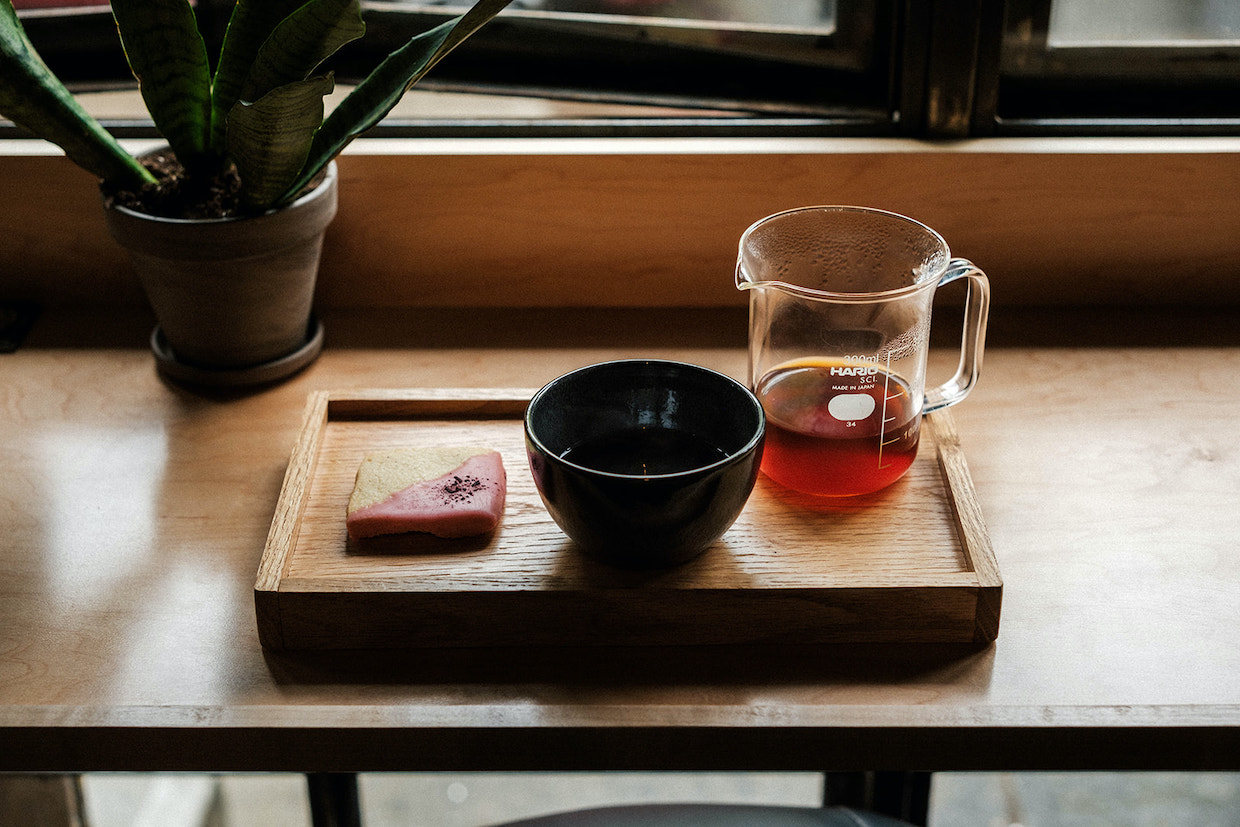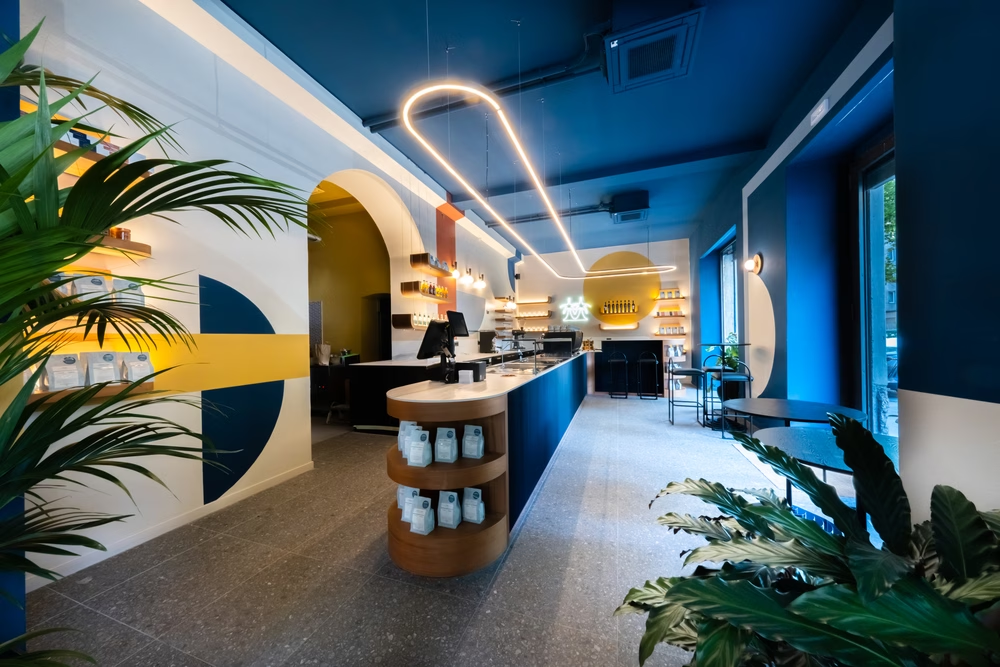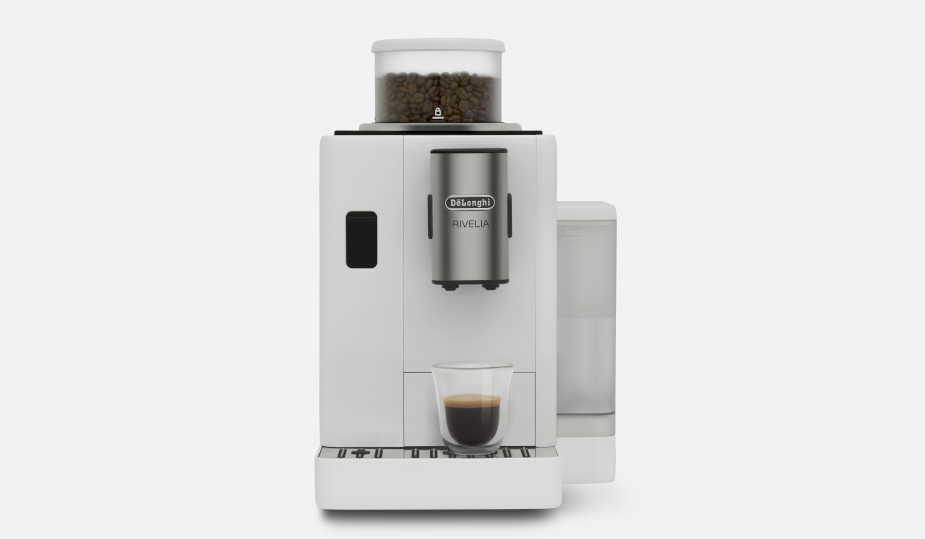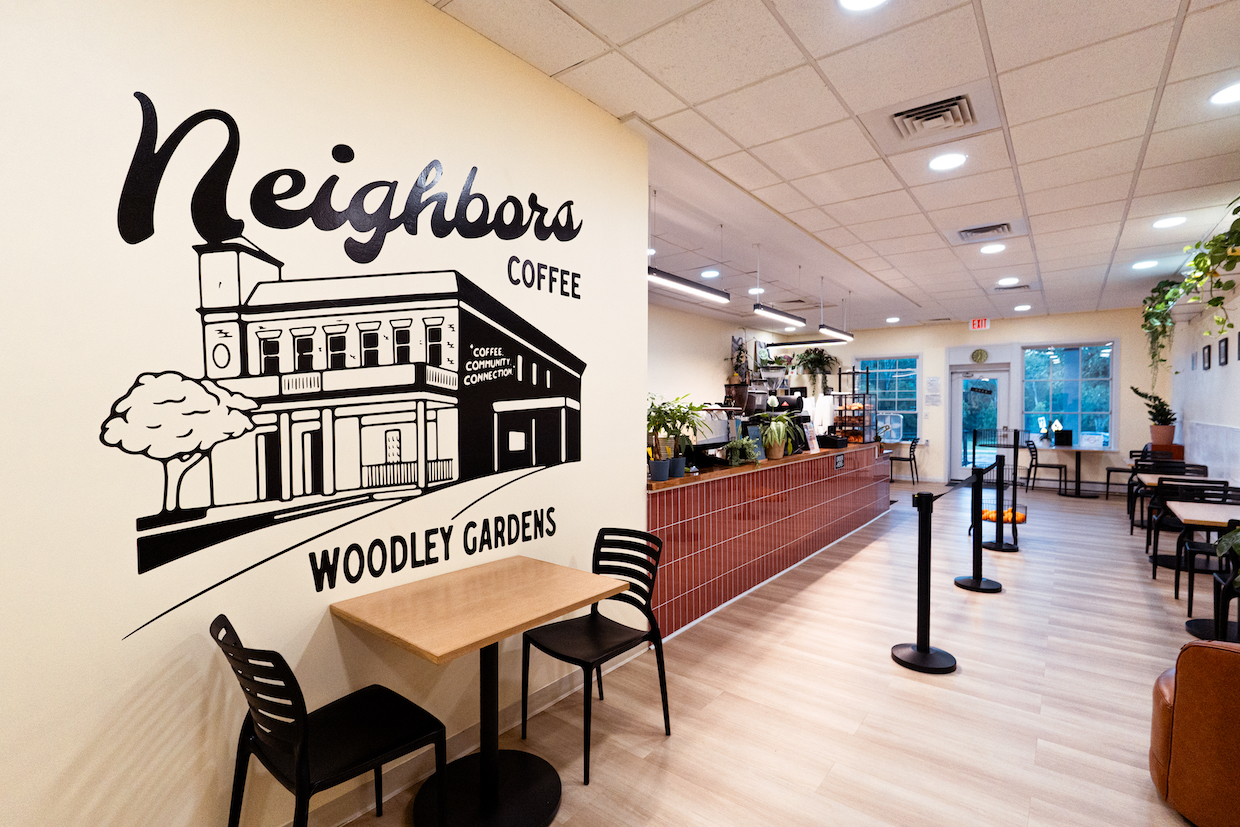Washed coffees have long been the bedrock of specialty coffee. Clean, crisp, and vibrant, these coffees are typically considered an expression of “pure” terroir and flavour, reinforcing their popularity.
In addition to their solid presence in coffee shops, roasters often take washed coffees to events, showcasing balanced flavour profiles that offer consistency and clarity. However, at World of Coffee Geneva, and other recent major trade shows, more exhibitors were serving high-end fermentations or categorised blends in the Roasters Villages.
This follows similar trends in the wider industry, where “funkier” coffees and versatile blends are becoming increasingly prominent – but washed coffees still maintain their presence.
I spoke with the 2025 World Coffee Roasting Champion Mikaël Portannier and Dajo Aertssen at Cafés MUDA to find out how washed coffees are enduring in a new era of innovation in specialty coffee.
You may also like our article on why specialty coffee shouldn’t have a favourite processing method.


Experimentally processed and intentionally fermented lots have gained popularity in specialty coffee over the last five years. Offering unique and exciting flavour profiles, these coffees are valuable conversation starters – and this is especially true at major global events.
The sheer scope of marketing and branding opportunities at expos is invaluable. Visitors from all over the world attend trade shows like World of Coffee, Expo, and HostMilano, providing roasters the chance to broaden their consumer reach on a level they can’t attain in their brick-and-mortar stores, or may struggle to achieve online.
By showcasing their “best” offerings, including high-end fermentations and high-scoring lots, exhibitors increase their chances of grabbing the attention of more attendees on an increasingly competitive trade show floor.
“You mainly see really high-end coffees at events,” says Dajo Aertssen, the CEO and head of coffee at Cafés MUDA, a specialty coffee roaster in Lille, France. “Attendees go to these events to try as many coffees as possible, and these high-end lots are more expensive for them to buy. They’re crowd-pleasing coffees.”
Roasters can create more memorable experiences for potential clients and industry peers with their “showstopping” coffees. The goal is to stand out among the numerous other exhibitors who are increasingly adding unconventional processing methods or high-scoring lots to their offering lists, and be one of the few roasters that visitors will continue to buy coffee from beyond the exhibition hall.
But as a result, there’s a distinct lack of “classic” mid-80-point washed coffees at events, and this has become increasingly common in recent years. At WoC Geneva, held in late June 2025, for example, more roasters than ever offered unique fermentations and advanced processing methods.
“Many roasters don’t showcase their 80-point washed coffees at events, but rather keep them to bulk up volume and reduce costs,” says Mikaël Portannier, the 2025 World Coffee Roasting Champion and the founder of Parcel, a new specialty coffee roaster in Normandy, France.
“Trade shows like WoC Geneva are used to showcase what everyone is doing at their best, and nobody wants to present an average cup.”
Why roasters are diversifying their coffees at trade shows
Creating a sense of exclusivity is one of the most effective ways for roasters to market their most exceptional coffees. Prestige and rarity can drive up brand appeal and price, sometimes to remarkable levels.
“Events or subscriptions can be great platforms to showcase any new product, especially in terms of processing or any other innovation,” says Mikaël.
The limited availability of high-end coffee at trade shows or through subscriptions reaffirms its premium positioning. Roasters can then set higher prices that a small but steady number of consumers are willing to pay.
Simultaneously, however, exclusively showcasing these coffees at events can obscure the realities of the broader market.
“Trendy specialty roasters present fermented and competition lots at events, but they don’t showcase their second-crack blends, which make up their actual business,” Mikaël tells me.
Mid-80-point coffees, including consistent and “classic” washed lots, comprise the bulk of the global specialty coffee industry. The market for high-end or funky fermented coffees, meanwhile, remains comparatively small.
Moreover, growing and offering these coffees isn’t economically viable for most producers and roasters, especially in a period of sustained high market prices.
This is leading some roasters to diversify the coffees they take to events to attract a wider range of customers.
“We’ve been to the Paris Café Festival twice now, and we have offered three different ranges of coffee both times,” says Dajo. “We have an 82-85 point coffee that we have all year round, a seasonal 85-87 single origin coffee that changes all the time, and an 88-plus coffee.
“The 88+ plus coffee is the biggest seller and gauges the most interest at events, but our more ‘basic’ coffees are more valuable from a business perspective.”


Why washed coffees will prevail
Innovation in coffee processing has accelerated significantly over the past few years. Year after year, new processing methods, such as anoxic fermentation and fruit co-ferments, appear at industry events and on coffee shop shelves.
Sensing financial opportunity, more producers are experimenting with processing techniques, including in countries associated with more washed coffees.
Roasters and importers like Onyx Coffee Lab and Covoya Coffee are increasingly offering natural or anaerobic fermented Kenyan coffees, for instance. This demonstrates noticeable shifts away from traditional processing methods and flavour profiles in favour of catering to more niche, premium markets.
The overexposure to exceptional or fermented coffees at trade shows, however, can mislead some into thinking that the market for advanced processing methods is bigger and more lucrative than it really is.
“The high-end lots only account for the top 1% of the world’s coffee,” says Dajo. “Almost all specialty coffee producers grow 80 to 85-point coffees, which make up their biggest volumes. If we only focus on the top quality, we can’t have a sustainable business.”
Regardless of the scale of their global market share, the growing prevalence of high-scoring and innovative processed coffees could lead to a more clearly defined market.
“We’re seeing more coffee shops and roasters becoming specialised in super high-end coffees, but many are opening without offering any of these coffees,” Dajo says.
As more roasters position themselves as high-end with interesting yeast inoculations and funky flavour profiles, others are focusing on approachability and accessibility with cost-effective blends that work across a range of roast profiles and brewing methods.
“With the C market as high as we have seen for the past few months, more roasters have created blends to manage costs while maintaining the same level of quality over their offer list,” Mikaël tells me.
Washed coffees will inevitably account for the bulk of these offerings. Their dependable, consistent, and classic flavour profiles are versatile and cater to the majority of consumer preferences.
“Regular washed coffees are coming back and will take a bigger share of the market that they have lost over the last few years,” Mikaël adds. “We just created a roasting company, Parcel, and we didn’t select any fermented or infused coffees – only classic washed and natural processes.”


Specialty coffee was built on dependable, excellent washed coffees, and they will remain a staple of roasters’ offerings for years to come.
The growing prevalence of high-end and experimentally processed coffees at events reflects wider trends in the industry. Still, the market for these lots will continue to remain small – especially while the C price hovers around US $3/lb.
Enjoyed this? Then read our article on how producers can drive quality in specialty coffee.
Photo credits: Specialty Coffee Association
Perfect Daily Grind
Want to read more articles like this? Sign up for our newsletter!











